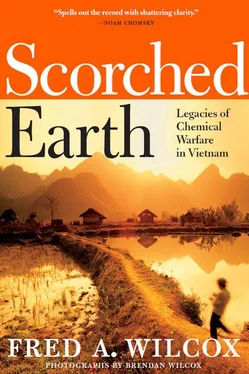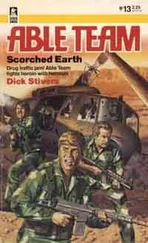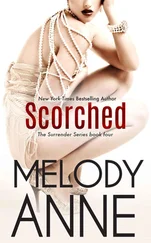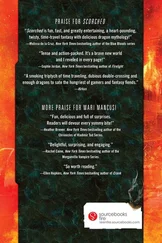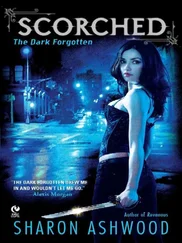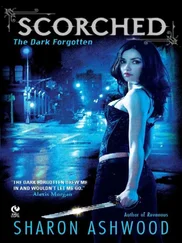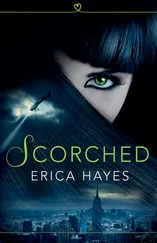“Our mission was a sad one,” wrote Dr. Westing, after touring defoliated parts of Cambodia,
A mission whose raison d’être we wish had never occurred. We felt particularly grieved about the innumerable direct and indirect losses suffered by the innocent local populace. We were able to see at first hand how particularly pernicious this type of military action is for people whose very existence is so closely tied to the land. And now that since the time of our visit the whole area we came to know has been utterly destroyed by the full impact of the spreading air and ground war, our sadness has turned to a feeling of despair. 6
Long before Daniel Shea’s moving testimony, Dr. Phuong delivered for the first time in her life a baby that had no head or limbs. After that, she witnessed terrible birth defects every few days. She watched new mothers go into shock when they saw their babies. She listened to them cry, sometimes for days, and heard them lament that they must have committed some terrible mistake for which God was punishing them.
“It took ten years for people to believe me,” says Dr. Phuong.
After the war ended in 1975, veterans began visiting the hospital to ask about birth defects and cancers related to herbicide spraying. She learned a lot from them, and they formed a bond that helped her continue working on behalf of Agent Orange children.
“What happened in Vietnam,” says Dr. Phuong, “was the first time in human history that a country has used chemical weapons, for so many years, on such a massive scale. This must never be allowed to happen again. Ever. We conducted many studies at Tu Du Hospital on the effects of Agent Orange, and scientists in other countries have conducted studies as well. We know that Dr. Arnold Schecter found high levels of dioxin in Vietnamese mothers’ milk, and that dioxin, like other toxic chemicals, can move from the mother’s body, through the placenta, into the developing fetus. We know that there are ‘hot spots’ in Vietnam, where high levels of dioxin have been found, and where dioxin has gotten into the food chain, so that people have been eating ducks and fish contaminated with dioxin.”
Does she invite manufacturers of Agent Orange to visit Tu Du Hospital, and to examine the extensive research she and other Vietnamese doctors and scientists have done into the effects of dioxin on animals and human beings?
“Oh yes,” she smiles, “I’ve invited them many times to visit. But they don’t come. They don’t talk. They hide. I always think that they do believe me. And that some day the United States government and the chemical companies will agree to help victims of Agent Orange. But if the companies refuse to pay, then people should not buy their products. All over the world, people should boycott those companies.”
It is late afternoon, and our interpreter looks tired. For the past three days, Miss Minh has accompanied us to homes in Cu Chi district, to Peace Village 2 in Ho Chi Minh City, and now to the Ngoc Tam Hospital where Dr. Phuong is general director. Witnessing the legacies of chemical warfare—handicapped children, poverty-stricken families, and jars containing horribly deformed fetuses—can be exhausting, indeed overwhelming, not only because of what we’ve seen, but because of the emotional roller coaster on which we’ve been riding, descending into a deep sadness, roiling in despair, rising to a rage that collapses into sullen confusion and a feeling of helplessness.
If you happen to visit Friendship Village in Hanoi, and the Peace Villages in Danang and Ho Chi Minh City, you will probably want to call your elected representatives, your prime minister or president, the heads of chemical companies to demand that they drop whatever they may be doing and come, quickly, to Vietnam. You will want to take one, or all, of these children home.
Dr. Phuong has testified at many international conferences on dioxin, she has published numerous scientific papers, and spoken to members of Congress about the need to help victims of chemical warfare. She does not believe that more studies are necessary to prove that dioxin harms human beings.
We descend the stairs to a small entranceway. Dr. Phuong is delighted to find her granddaughter waiting, and as they prepare to ride a motorbike into the chaotic Ho Chi Minh traffic, she calls out:
“I’m sixty years old. And still delivering babies.”
If the monsters in the Evidence Room could speak, what might they say? Would they want to know who poisoned their mothers and fathers? Did their mothers manage to give birth to normal babies, or, like so many Vietnamese women, did their children stop eating, grow listless, and—like Dr. McNulty’s rhesus monkeys—just lie down and die? Are their fathers still alive? Men who came home from the war in seemingly good health, wishing only to put the war behind them, and then one day started to feel weak, chronically exhausted, hammers driving nails into their brains, mole-like growths erupting over their limbs, chests, and backs. Sometimes their bodies itch, not just their skin, but like swarms of insects gnawing at their insides. Unable to work, these men become invalids, confined to bed. Doctors tell ex-soldiers that their bodies are diseased; they have weak hearts, cancer, and other ailments for which there is no cure. They will die from having been exposed for many years to Agent Orange.
Dr. Phuong has met many doubters. She’s listened to their arguments, and she understands that the adage, “seeing is believing,” does not always hold true. She also knows that reputable scientists in many countries now share her views about the deadly effects of dioxin. The chemical companies may try to discredit Dr. Phuong’s work, and that of other researchers like her, but she does not intend to give up her decades-long struggle to convince doubters that Agent Orange/dioxin has mutilated and killed many thousands of babies inside of their mothers’ wombs.
CHAPTER 13
Letters Don’t Lie
War reverberates for years afterward, spinning lives into a dark oblivion of pain and suffering.
—Chris Hedges
Ken Herrman landed on Hill 435, better known as LZ West, during the battle for Nui Cham Mountain. Grunts were pulling body bags off choppers, helping the walking wounded, and tossing supplies onto departing birds. It was May 1968, four months after the Vietcong and the North Vietnamese army had attacked every town and city in the southern half of Vietnam, sustaining heavy losses but still capable of waging fierce attacks against American forces.
Herrmann was assigned to operate a radio at night, communicating with infantry companies in the valley below LZ West.
“The operations officer for the battalion was an insomniac who spent hours each night discussing the war, philosophy, literature, and the madness in which we were all immersed. One night he asked me what I’d like to do during the war. I said, ‘leave and go home.’ He laughed and asked if I’d like to work with the Vietnamese in the valley. I’d been a teacher and a social worker before being drafted, and he thought this was a good background for doing that.”
Herrmann soon found himself trudging along with infantrymen throughout the valley and west from the Que Son Valley into Hiep Duc Valley, an area heavily controlled by the Vietcong.
As Civil Affairs officer for the battalion, he organized med-caps (medical clinics for the locals), distributed propaganda posters, and broadcasted propaganda over backpack loudspeakers to lure the enemy into surrendering.
“I was briefly assigned the responsibility for psychological operations. That meant that I became the disc jockey for the valley. I carried a thirty-pound speaker system on my back and a cassette recorder in my pack. Accompanied by an interpreter, I would crawl around in the night, broadcasting the names of suspected Vietcong and playing loud Vietnamese love songs to make the VC so homesick they would stop fighting. During a few firefights, we played these songs and read the names. The music did not seem to have any effect on the fighters at all. It did have an effect that we could measure just once. We sat on a hill, played tunes, and begged the enemy to surrender for a straight twenty-four hours. The next day, US troops were shocked to see thirty VC holding their weapons in the air and surrendering. I never knew if they could not stand the music we chose, and surrendering seemed the only way to stop us from playing it, or we actually broke their morale.”
Читать дальше
